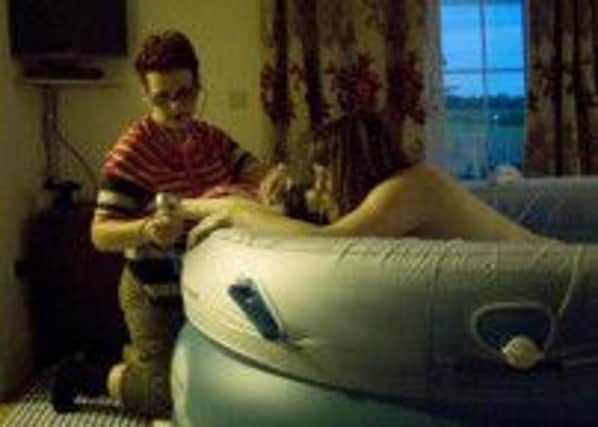NHS chief calls for more home births to save cash


He said cutting annual hospital births from 10,000 to 5000 was an example of the level of change needed to plug growing gaps in funding.
New guidelines from the National Institute for Health and Care Excellence said women with low-risk pregnancies should be encouraged to have a non-hospital birth.
Advertisement
Hide AdAdvertisement
Hide AdAnd with the birthing unit at the Edinburgh Royal Infirmary so popular it needs ten new consultants – at a cost of £1.5 million – “just to stand still”, it is a policy likely to be pursued by NHS Lothian.
It comes as health bosses admitted finances were already in the red this year and the board will need to find an additional £70m to balance the books for 2015-16.
Mr Davison told senior board members deploying more midwives in the community and shutting an obstetrics unit was the sort of drastic measure needed to cope with soaring demand and shrinking resources. But he said significant investment would be needed first.
He said: “The National Institute for Health and Care Excellence announced their view that more and more deliveries, and certainly second deliveries, would be safer to be delivered at home rather than in hospital.
Advertisement
Hide AdAdvertisement
Hide Ad“Because our costs are people, buildings and drugs, the only radical redesign would be, instead of having 10,000 hospital deliveries in the Lothians, we would have 5000. I think we would have to do something as radical as that in the speciality and we would require additional investment.
“We would also have the task of persuading 5000 mums that they should have their babies at home.”
Only 1.2 per cent of expectant mothers currently opt for a home birth in Scotland, with nine in every ten UK births taking place in a consultant-led maternity unit.
The wider use of home births has been welcomed by those who believe childbirth has become hyper-medicalised, leading to unnecessary interventions such as caesareans and the use of forceps, and that hospital births carry a greater risk of infection.
Advertisement
Hide AdAdvertisement
Hide AdElizabeth Duff, senior policy adviser for the National Childcare Trust, said the new guidelines would increase the confidence of women to plan to give birth in a midwife-led unit or at home.
“These options are safe for most women and can offer benefits such as care from a known midwife and less intervention.
Gillian Smith, director of the Royal College of Midwives in Scotland, said the most important element for mums-to-be was being able to make an informed choice.
“It would still take resources to be able to give women the choice.
Advertisement
Hide AdAdvertisement
Hide Ad“Currently I don’t think the service is set up for that and is much more the hospital model but I welcome the decision to look at it.”
‘Your body knows what you need’
MUM-of-three Elaine Gunn opted for home births after reading it was a safer option with low-risk pregnancies.
She and husband Angus planned on having all three boys at home in Ratho and were disappointed when she was transferred to have Lewis, who turns five tomorrow, in hospital because of slight complications. The experience made her more determined to have Adam, three, and Fergus, 18 months, at home.
“It was so much better,” she said. “Your hormones and your body know what you need and we’ve just lost trust in that and we expect it all to be a nightmare and it all to go wrong. It was hard, and it was sore at points, but there was no drama whatsoever.”